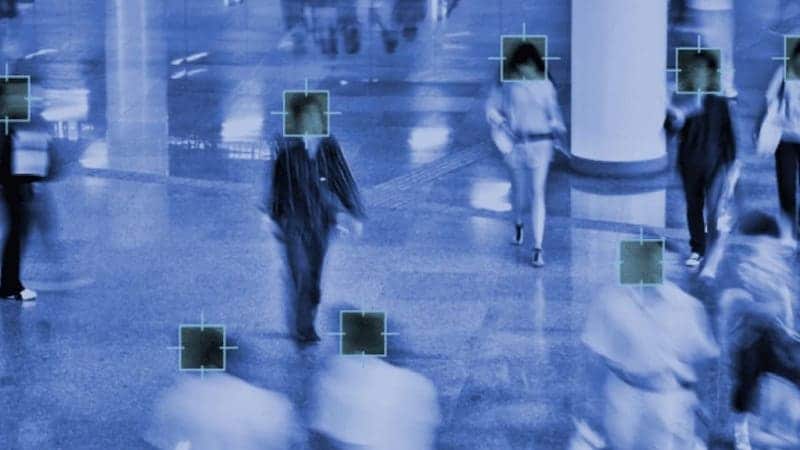One of the most controversial issues related to the increasingly massive and advanced use of artificial intelligence concerns facial recognition.
As we will see, Meta – this has been the new name of the group led by Mark Zuckerberg for a few weeks – has recently made it known that Facebook will abandon facial recognition as soon as possible.
And in the world there are various controversies that, on the subject, have recently jumped to the headlines. The reason is the not always transparent use of this instrument, yes, with enormous potential, but also very delicate from a legal and ethical point of view.
Italy has also moved on the use of biometric data. On the afternoon of Thursday 18 November, an amendment proposed by two senators of the Democratic Party was discussed and approved in the Senate. The law calls for the suspension of the installation of video surveillance systems equipped with facial recognition by private parties.
Let’s find out in more detail the amendment approved in the Senate. And we retrace the last stages of the debate on facial recognition at a global level, destined to remain one of the hot topics at the crossroads between new technologies and privacy in the near future.

The amendment passed in the Senate
The amendment presented in the Senate by Alan Ferrari and Valeria Valente it is part of the process of “conversion into law, with modifications, of the decree-law 8 October 2021, n. 139, containing urgent provisions for access to cultural, sporting and recreational activities, as well as for the organization of public administrations and for the protection of personal data “.
The proposal, discussed and passed in the Senate on November 18, would imply a ban on the installation of video surveillance systems. Therefore based on the acquisition of biometric data.
Stop to facial recognition: ways and times
For whom does the ban apply, and until when will it take effect?
This can be read in the amendment itself. “The installation and use of video surveillance systems with facial recognition systems operating through the use of biometric data […] in public places or places open to the public, by public authorities or private entities, are suspended until the entry into force of a legislative discipline on the matter and in any case no later than 31 December 2023. “
That is to say: suspension until the end of 2023, unless a specific law is passed first.
For transgressors, pecuniary administrative sanctions are envisaged. However, the judiciary and public prosecutor, during any operation deemed useful for carrying out the investigation, can use facial recognition technologies.
The extension of a moratorium
In reality the current amendment is an extension of a proposed law presented last April 14 by the deputy of the Democratic Party Filippo Sensi, who asked for the stop of the use, by public authorities or private subjects, of facial recognition technologies based on biometric data in public places or places open to the public.
Interpretative doubts
The technology and privacy lawyer, Carlo Blengino, says that “the amendment is not easy to understand. The use by public authorities and private entities of facial recognition systems, which however necessarily use biometric data for their operation, connected and based on video surveillance systems in public places or open to the public, should be suspended. “
Blengino then explains: “The problem does not seem to be the video surveillance itself, which is already legitimate, but the algorithmic processing of the data that can be extracted with facial recognition techniques from the recordings of a normal video camera”.

In April, the Guarantor stops in Sari
The stop to facial recognition passed in the Senate comes a few months after the contrary opinion of the Privacy Guarantor in Sari Real Time, given last April. According to the Guarantor, Sari (a tool used by the Italian Police) could lead “from the targeted surveillance of some individuals to the possibility of universal surveillance in order to identify some individuals.”
The Guarantor in April had raised a second issue, that of the so-called “false positives”. That is, the possible mismatch between a face intercepted by a surveillance camera and the real identity of a person.
An open problem
As we said at the opening of the article, the topic is hot.
Meta has decided that Facebook will no longer use facial recognition: a way, perhaps, to gain credibility after the recent and sensational scandals arising from the Facebook Papers.
The company explains in a statement that “there are many concerns about the role of facial recognition technology in society. And regulators have yet to provide a clear set of rules governing their use. “
We recall that, precisely for the breach of biometric data, last February the Illinois court sentenced Facebook to pay 650 million dollars.
The investigation aimed at demonstrating that the facial recognition software developed by the company Clearview AI has not always been used lawfully.
Meanwhile, the Reclaim Your Face campaign continues, which aims to ban the use of biometric technologies.















Leave a Reply
View Comments